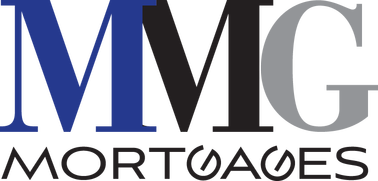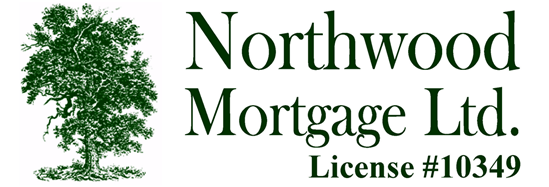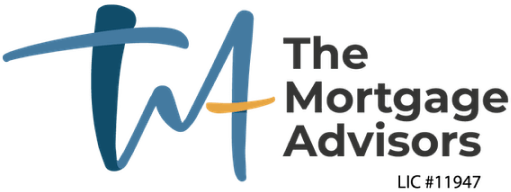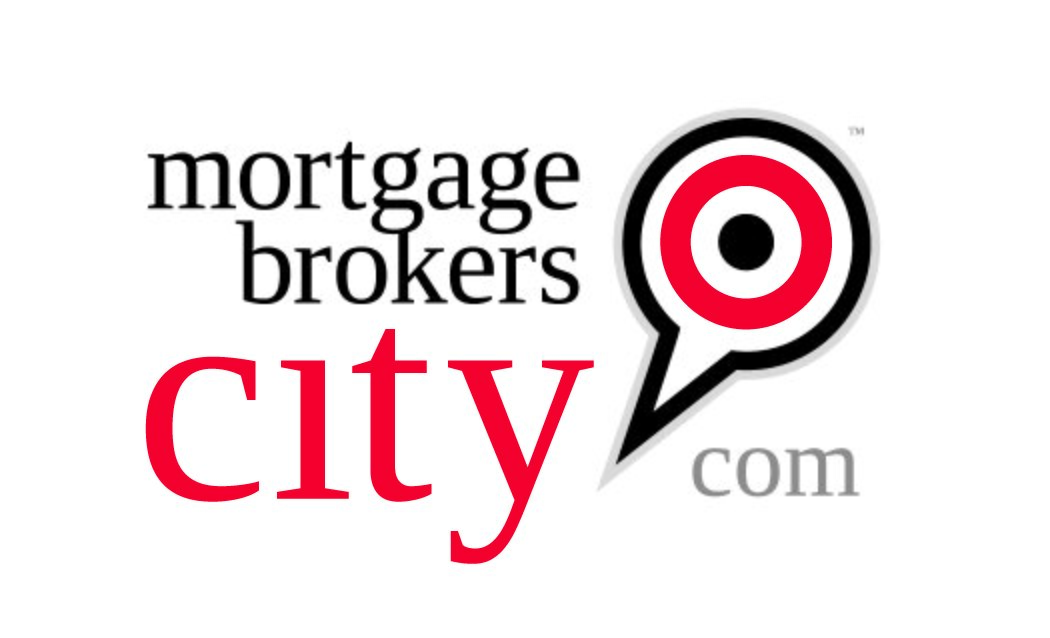Best Mortgage Rates in Mississauga
Compare Mississauga mortgage interest rates from Canada's top lenders and save on your mortgage
Today's Best Mortgage Rates in Mississauga, Ontario
Evaluate Mississauga’s best mortgage rates in one place. You can compare the most current mortgage rates and monthly payments from 175+ banks and lenders across Ontario.
Rates are based on an average mortgage of $500,000 and subject to change based on filter criteria.
| Lender
|
Insured
|
Insurable
|
Uninsured
|
|---|---|---|---|
|
MMG Mortgages
|
3.99%
$2,627.39 / month
|
4.19%
$2,681.85 / month
|
4.14%
$2,668.19 / month
|
|
Mortio Financial Corp
|
3.99%
$2,627.39 / month
|
4.24%
$2,695.56 / month
|
4.14%
$2,668.19 / month
|
|
Northwood Mortgage Ltd.
|
4.14%
$2,668.19 / month
|
4.24%
$2,695.56 / month
|
4.24%
$2,695.56 / month
|
|
Innovation Federal Credit Union
|
4.39%
$2,736.87 / month
|
4.39%
$2,736.87 / month
|
4.39%
$2,736.87 / month
|
|
True North Mortgage
|
2.99%
$2,363.66 / month
|
2.99%
$2,363.66 / month
|
2.99%
$2,363.66 / month
|
|
The Mortgage Advisors
|
3.87%
$2,594.98 / month
|
3.87%
$2,594.98 / month
|
3.87%
$2,594.98 / month
|
|
Nesto
|
3.91%
$2,605.76 / month
|
3.91%
$2,605.76 / month
|
3.91%
$2,605.76 / month
|
|
Hypotheca
|
3.94%
$2,613.86 / month
|
3.94%
$2,613.86 / month
|
3.94%
$2,613.86 / month
|
|
MortgagestoGo
|
3.94%
$2,613.86 / month
|
3.94%
$2,613.86 / month
|
3.94%
$2,613.86 / month
|
|
One Link Mortgage & Financial
|
3.95%
$2,616.57 / month
|
3.95%
$2,616.57 / month
|
3.95%
$2,616.57 / month
|
|
Sudbury Credit Union
|
3.99%
$2,627.39 / month
|
3.99%
$2,627.39 / month
|
3.99%
$2,627.39 / month
|
|
Monster Mortgage
|
3.99%
$2,627.39 / month
|
3.99%
$2,627.39 / month
|
3.99%
$2,627.39 / month
|
|
Northern Birch Credit Union
|
3.99%
$2,627.39 / month
|
3.99%
$2,627.39 / month
|
3.99%
$2,627.39 / month
|
|
The Police Credit Union
|
3.99%
$2,627.39 / month
|
3.99%
$2,627.39 / month
|
3.99%
$2,627.39 / month
|
|
City Wide Financial Corp
|
3.99%
$2,627.39 / month
|
3.99%
$2,627.39 / month
|
3.99%
$2,627.39 / month
|
|
Mainstreet Credit Union
|
3.99%
$2,627.39 / month
|
3.99%
$2,627.39 / month
|
3.99%
$2,627.39 / month
|
|
East Coast Mortgage Brokers
|
4%
$2,630.10 / month
|
4%
$2,630.10 / month
|
4%
$2,630.10 / month
|
|
Mortgage Brokers City Inc
|
4.04%
$2,640.95 / month
|
4.04%
$2,640.95 / month
|
4.04%
$2,640.95 / month
|
|
Prospera Credit Union
|
4.04%
$2,640.95 / month
|
4.04%
$2,640.95 / month
|
4.04%
$2,640.95 / month
|
|
First Credit Union
|
4.29%
$2,709.29 / month
|
4.29%
$2,709.29 / month
|
4.29%
$2,709.29 / month
|
|
First National Financial
|
4.34%
$2,723.07 / month
|
4.34%
$2,723.07 / month
|
4.34%
$2,723.07 / month
|
Today's Best Mortgage Rates in Mississauga
Evaluate Mississauga's best mortgage rates in one place. RATESDOTCAs Rate Matrix lets you compare pricing for all key mortgage types and terms.
Rates are based on an average mortgage of $500,000 and subject to change based on filter criteria.
Updated 22:53 on Jul 11, 2025| Placeholder |
Insured
The rates in this column apply to borrowers who have purchased mortgage default insurance.
This is required when you purchase a home with less than a 20% down payment.
The home must be owner-occupied and the amortization must be 25 years or less.
|
80% LTV
The rates in this column apply to mortgage amounts between 65.01% and 80% of the property value. The home must be owner-occupied and have an amortization of 25 years or less. You must have purchased it for less than $1 million. These rates are not available on refinances. Refinances require "Uninsured" rates.
|
65% LTV
The rates in this column apply to mortgage amounts that are 65% of the property value or less. The home must be owner-occupied and have an amortization of 25 years or less. You must have purchased it for less than $1 million. These rates are not available on refinances. Refinances require "Uninsured" rates.
|
Uninsured
The rates in this column apply to purchases over $1 million, refinances and amortizations over 25 years. More info on the differences between insured and uninsured rates.
|
Bank Rate
Bank Rate is the mortgage interest rate posted by the big banks in Canada.
|
|---|---|---|---|---|---|
| 1-year fixed rate | 4.99% | 4.79% | 4.79% | 5.59% |
5.49%
|
| 2-years fixed rate | 4.04% | 4.34% | 4.34% | 4.54% |
4.79%
|
| 3-years fixed rate | 3.87% | 4.09% | 4.09% | 4.24% |
4.29%
|
| 4-years fixed rate | 4.09% | 4.15% | 4.15% | 4.44% |
4.39%
|
| 5-years fixed rate | 3.91% | 3.89% | 3.89% | 3.91% |
4.09%
|
| 7-years fixed rate | 5.19% | 5.00% | 5.00% | 5.19% |
5.00%
|
| 10-years fixed rate | 5.24% | 5.24% | 5.24% | 5.29% |
6.09%
|
| 3-years variable rate | 4.40% | 4.30% | 4.30% | 4.40% |
6.35%
|
| 5-years variable rate | 4.04% | 4.04% | 4.04% | 4.05% |
4.25%
|
| HELOC rate | N/A | N/A | N/A | N/A |
N/A
|
| Stress Test | 5.25% | 5.25% | 5.25% | 5.25% |
N/A
|
Mississauga, Ontario’s housing market
The Mississauga housing market activity has seen a downward trend this year, with total sales in September coming in significantly below the historical averages.
According to the Mississauga Real Estate Board, the number of homes sold through the MLS® System totaled 466 units in September 2022, down sharply by 45.9% from the same period last year. Home sales were 38.4% below the five-year average and 42.2% below the 10-year average for the month of September. On a year-to-date basis, home sales totaled 5,768 units over the first nine months of the year, which is a substantial decline of 36.1% from the same period in 2021.
The average price of homes sold in September 2022 was $1,032,889, a slight reduction of 0.5% from September 2021. The more comprehensive year-to-date average price was $1,142,199, increasing by 13% from the first nine months of 2021.
At least 60.3% of household owners in Mississauga have a mortgage, according to the Statistics Canada’s 2021 Census of Population. September was the third month in a row that active listings have contracted, and as a result the number of available properties at the end of the month fell to the lowest level since April.
Even as the existing market conditions have shifted in favour of the buyers, it is still balanced.
It’s an exciting – albeit challenging – time for prospective homeowners looking to purchase property in Mississauga. As you shop around to find a home that’s right for you, make sure to compare mortgage rates to ensure you find the best rate available in today’s market.
Tips for first-time home buyers in Mississauga, Ontario
Buying your first home is exciting but can also be overwhelming with the plethora of do’s and don’ts to consider. In order to get the lowest mortgage rates in Mississauga one must do comparison shopping. You cannot rely on just one lender or one mortgage broker if they want to get the best deal.
The right place to start is with a good mortgage rate aggregator (looks like you hit jackpot being here at Ratesdotca!) This will help you see a large representation of the mortgage market, all at once. It’s especially important to focus on rate sites that show all top lenders.
Unlike Ratesdotca, most others don’t.
If you’re looking for a good roadmap to finding deals, here’s a simple four-step process to securing the mortgage with the lowest borrowing costs:
1) Get solid advice on the right mortgage term given your five-year plan
- The term you pick has a huge effect on your interest costs
- You can get this advice online or in-person
- It never hurts to talk to an experienced mortgage advisor, but don’t put too much weight in their opinions because some bankers and brokers have a bias to one term
2) Identify the lowest rates for that term
- You can easily do this on a rate comparison website
- Read the rate notes carefully because some of the cheapest rates come with lots of fine print and restrictions
- Call the lender or mortgage broker advertising the rate
3) Ask them to list all material features and limitations of the rate in question
- Things like the prepayment penalty calculation method, porting rules and refinance options can enormously impact your borrowing costs
- Pick the mortgage with the best combination of upfront interest savings and after-closing flexibility
As a first-time home buyer, you can also take advantage of the First-Time Home Buyer Incentive when purchasing your first home. The Incentive helps qualified first-time home buyers reduce their monthly mortgage payments without adding to their financial burdens.
Through this Incentive, the first-time home buyer may not have to save as much of a down payment to be able to afford the payments associated with the mortgage. The effect of the larger down payment is a smaller mortgage, and, ultimately, lower monthly costs.
This shared-equity mortgage with the Government of Canada offers 5% or 10% for a first-time home buyer's purchase of a newly constructed home; 5% for the purchase of a resale (existing) home; or 5% for the purchase of a new or resale manufactured home.
This addition to your down payment lowers your mortgage carrying costs, making home ownership more affordable.
At present, first-time homebuyers purchasing a home in the Toronto, Vancouver, or Victoria Census Metropolitan Areas are eligible for an increased Qualifying Annual Income of $150,000 instead of $120,000, and an increased total borrowing amount of 4.5 instead of 4.0 times their qualifying income.
Frequently asked questions about mortgages in Mississauga, Ontario
Here are some of the most-asked questions about Mississauga mortgages and tips on finding the cheapest mortgage rates.
How much can I save by comparing the current Mississauga mortgage rates?
You can save hundreds of dollars every month by comparing mortgage rates. As you shop around to find a home that’s right for you, make sure to compare mortgage rates to find the best rate available in today’s market.
Why should I compare Mississauga mortgage rates with RATESDOTCA?
RATESDOTCA helps you identify lenders offering the cheapest mortgage rate best suited for your financial situation. For example, TD is a well-known lender, but its rates are often higher than a less-known lender like MCAP. But the latter has much more favourable terms (e.g., MCAP’s prepayment charges are lower, and its mortgages are standard non-collateral charges, which can reduce switching costs at maturity).
Are Mississauga mortgage rates higher than other Ontario cities?
For homebuyers in Mississauga, finding homes and mortgage rates that are affordable can pose quite the challenge given today’s housing market situation and proximity to Toronto. Finding the best mortgage rate, however, is easy. Compare mortgage rates today.
What’s the difference between variable and fixed rate mortgages?
The decision of whether to go with a fixed rate mortgage or a variable rate mortgage is one of the most complex ones in mortgage financing. It depends on various factors such as the person's risk tolerance, ability to absorb interest rate shock, anticipated changes in interest rates and personal preferences. A fixed rate mortgage is a mortgage with an interest rate that is guaranteed for the duration of the term. Regardless of what happens with the general level of interest rates in the economy, the mortgage rate for a fixed mortgage stays constant. Once the mortgage is up for renewal at the end of the term it would have to be renewed at the prevailing rate at that point in time.
Fixed rates are affected by bond yields. Generally speaking, a certain spread is maintained between bond yields and fixed mortgage rates so when bond yields increase so do fixed mortgage rates. Bond yields are influenced by economic factors (i.e. inflation, unemployment, etc.).
On the other hand, a variable rate mortgage is a mortgage with an interest rate that fluctuates based on the prime lending rate. The prime lending rate is the rate used by banks to lend to their best customers. The prime rate is influenced by the key overnight rate set by the Bank of Canada. The key overnight rate is the rate at which banks make short term loans to each other and is adjusted based on economic factors.




























